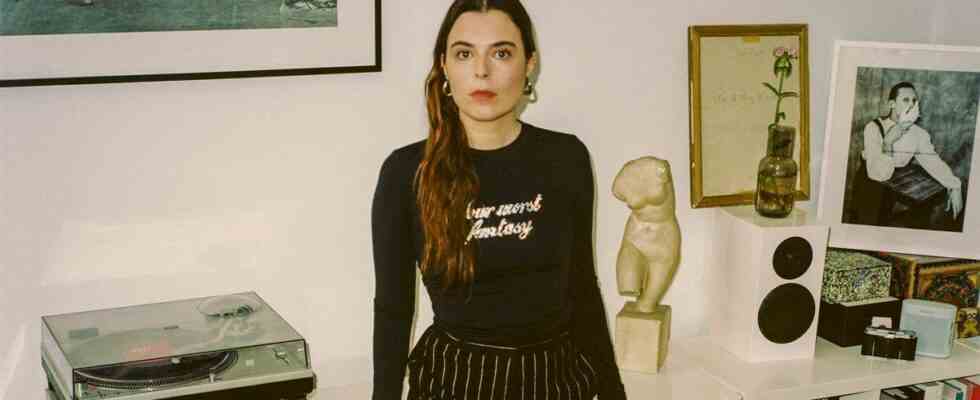Her face and her punchlines are known by a large part of the feminist sphere who frequent social networks. Anna Toumazoff, 27, is the head of the Instagram account @memesforcoolkidsfeminists, where more than 160,000 subscribers follow her for her memes on feminism, but also for her fights to improve the conditions of women’s rights. In the beginning, she wanted “to popularize feminism, because I was tired of always having the same discussions in the evening or on Twitter. I said to myself that if I centralized everything on the same page, it would give a global message”. Very quickly, she created memes, these viral humorous images, where she talks about subjects that affect women and gender minorities: sexist and sexual violence, toxic relationships, sexist remarks by certain politicians…
In 2019, she launched the hashtag #UberCestOver, following the testimony of a subscriber who experienced a sexual assault during an Uber ride. “It fell on me, it was not planned at all. I was trying to give strength to a subscriber who sent me a message, and there I realized that there was a phenomenon of magnitude,” she recalls. The hashtag is spreading, the testimonies are pouring in, and Anna Toumazoff finds herself propelled onto television sets to talk about these subjects: “You are never ready to be propelled into the media. You never really get used to it because human beings are not made to be exposed like that, it’s not totally healthy”. This will be followed by the #SciencesPorcs movements, on sexist and sexual assaults within the great school Sciences po, or even #DoublePeine, on the poor reception of victims of violence in police stations or gendarmeries.
“I learned to free myself from the threats of fascists, maybe that makes me a little reckless sometimes”
The sudden media coverage of the activist attracts the wrath of the far right, anti-feminists, political figures. “That’s why I was able to talk a lot about mental health, because I put mine to the test,” she breathes. A “strange life, where you lead everything at once”, which demands that she be well surrounded. “The threats I receive, of death, rape, disfigurement, I speak about with coldness and detachment because there are certain cells in my brain that are fried. It’s not normal to get used to that,” she adds. Between Brussels and Paris, she continues to write, to carry her fights, but now she slows down… “I learned to free myself from the threats of the fachos, perhaps that makes me a little reckless sometimes” loose Anna Toumazoff in a half smile. In more than four years on the networks, she tries to protect herself, and to preserve her mental health.
The issue of mental health is particularly close to her heart: “We are fighting against oppression while living it, so these are two very complex things,” she explains. So she passes the baton, surrounds herself, acts collectively. “I quickly considered that for many reasons, which are linked to many privileges that I may have, I was given the floor. And so it was very important to distribute it to sisters and fellows who were perhaps better able to talk about things that concerned them” develops the activist. Digital is good, but the battle also takes place on a daily basis, everywhere, all the time.
Intellectual honesty, political strategy and accountability
A few months ago, Anna Toumazoff published Your life without a filter: from alcohol to travel, 100 words to understand everything (Editions Mango Jeunesse), sort of Dictionary of new generation teenagers, slut-shaming and less guilt. In this month of October, she confides to us that she wants to “continue to write, to continue the networks, to try to extend myself to other formats as well… The goal is for people to be well”. For the future, she sees her activity in two parts: “To continue to smash the patriarchy as best as I can, with always intellectual honesty and political strategy, and to make people feel good, to remind them that to go, and that we must preserve ourselves”.
Militant fatigue, which she knows well, pushes many activists to withdraw from social networks and political organizations for a while. “When I’m fed up, I’ll retire: when you’re militantly tired, you hurt yourself and you’re not very strategic”. At 27, the activist feels invested with a responsibility: “by being visible, I have to show that even if we look strong, we have the right to go wrong sometimes, that we all have failures “. Because the feminist struggle is carried out every day, step by step, post after post: it’s a long-distance race.

